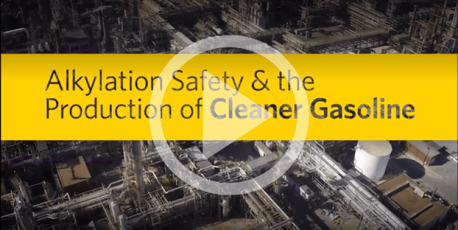Yes, Diesel Supplies Are Tight. This Is What Refiners Are Doing About It.
Diesel inventories in the United States and around the world are low and there is growing concern about what tight supplies could mean heading into a cold winter. Below, AFPM’s industry analysts explain (1) what’s behind this particular supply chain challenge, (2) how U.S. refiners are adapting operations to meet consumer needs (i.e., running full out and maximizing distillate production) and (3) the role government might play in bringing about resolution.
Bad Ideas on the Rebound: Why Minimum Inventories & Export Restrictions are Still a Lose-Lose
Restricting exports would be a major unforced error for the President, tightening global fuel supplies, throttling U.S. fuel production and increasing costs for American consumers. Likewise, imposing product inventory requirements boils down to siphoning gasoline and diesel into storage, and away from consumers.
Windfall Profit Tax = Good for Political Soundbites, Bad for Consumers
AFPM President and CEO Chet Thompson issued the following statement regarding President Biden’s suggestion that a Windfall Profit Tax should be considered to address fuel supplies and prices: “Once again, the President is more worried about political posturing before the Midterms than he is about advancing energy policies that will actually deliver for the American people."
CA Politicians: Blame Anything for CA Gas Prices, Except Us.
Governor Gavin Newsom continues to blame fuel refiners for California’s highest-in-the-nation fuel prices. He couldn't be more wrong. The problem and solution to much of California’s fuel price challenge can be found in Sacramento policy. Take a look to better understand the role of policy in regional price differences, why it’s inaccurate to equate “margins” or “refinery cracks” with “profits,” and why windfall profit taxes are a known policy failure.
What Happens with Refinery Profits… and Are “Buy Backs” a Bad Thing?
Earnings in commodities-based industries tend to be cyclical. Because of the up-and-down reality of refining, it would be a mistake to regulate or legislate based on the high points. A few quarters of earnings don’t provide an accurate representation. That context is important for answering the question of what happens with refinery profits and whether using earnings to “buy back” stock from shareholders is an appropriate use of those funds.
New AFPM Video: Alkylation Safety & the Production of Cleaner Gasoline
The American Fuel & Petrochemical Manufacturers (AFPM) today released a new video highlighting the safety approach and measures used by U.S. refineries with hydrofluoric acid (HF) alkylation units.
AFPM Response to White House SPR Announcement
AFPM President and CEO Chet Thompson issued the following statement in response to the White House’s latest announcement of a release of crude oil from the SPR: “The SPR was never meant to serve as a substitute for actual crude oil production. At best, SPR releases are a short-term fix, not a long-term solution or signal of stability to a market craving reassurance..."
AFPM and API to Sec. Granholm: Refined Product Export Ban Will Disrupt Global Markets and Harm U.S. Consumers
The American Fuel and Petrochemical Manufacturers (AFPM) President and CEO Chet Thompson and American Petroleum Institute (API) President and CEO Mike Sommers today sent a letter to U.S. Secretary of Energy Jennifer Granholm raising significant concerns that the administration could pursue a ban or limits on refined petroleum products.
“Banning or limiting the export of refined products would likely decrease inventory levels, reduce domestic refining capacity, put upward pressure on consumer fuel prices, and alienate U.S. allies during a time of war,” Thompson and Sommers wrote.
“Banning or limiting the export of refined products would likely decrease inventory levels, reduce domestic refining capacity, put upward pressure on consumer fuel prices, and alienate U.S. allies during a time of war,” Thompson and Sommers wrote.
AFPM, API Joint Statement on White House, DOE Meeting with U.S. Refiners
The American Fuel & Petrochemical Manufacturers (AFPM) and American Petroleum Institute (API) today released the following statement after a meeting that included Secretary of Energy Jennifer Granholm, senior White House officials and leaders of the top U.S. refining companies







